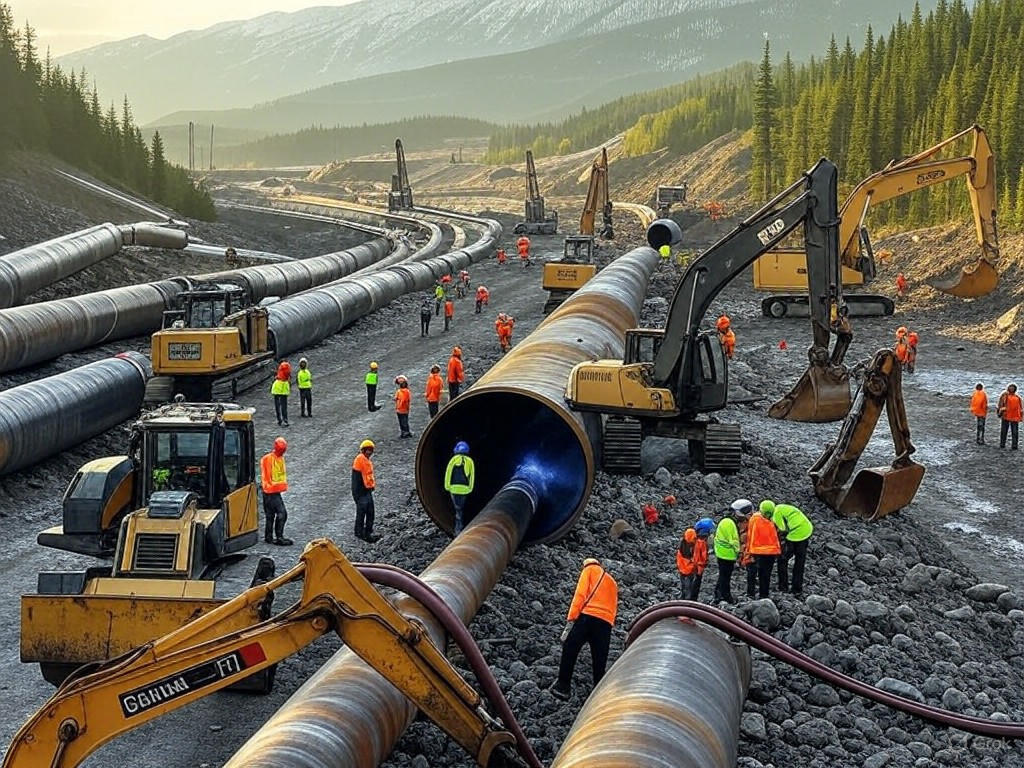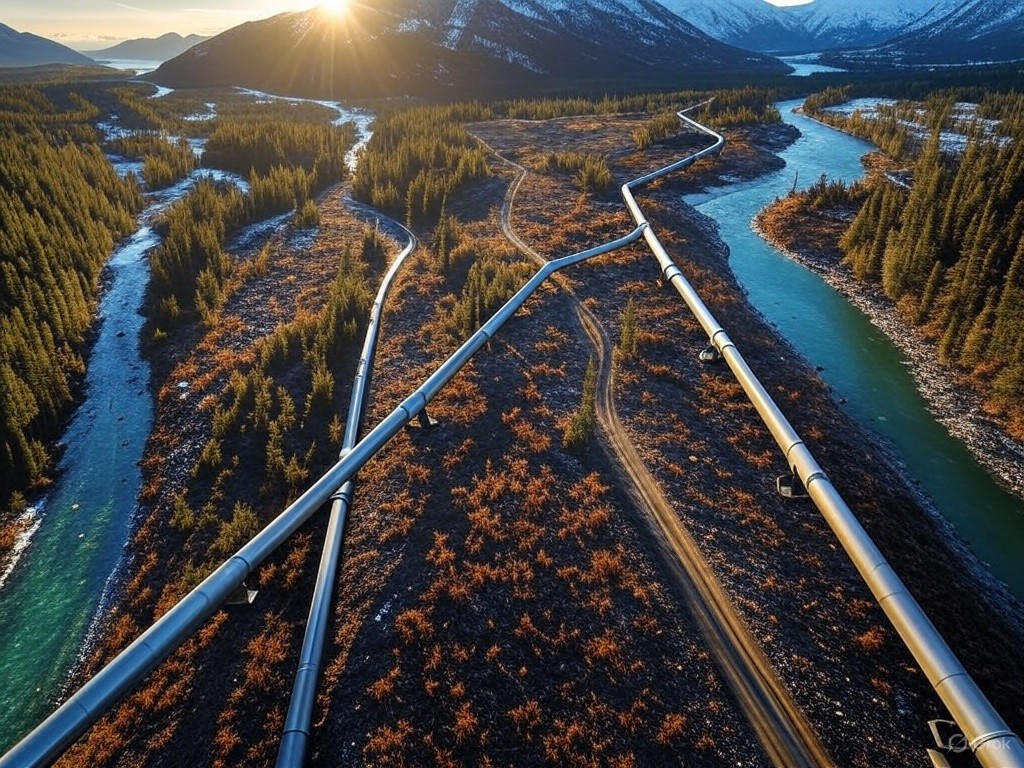Northern Gateway Pipeline: BC’s Economic vs. Environmental Debate
In the vast, untamed wilderness of British Columbia, where snow-capped peaks meet the Pacific's restless waves, the Northern Gateway pipeline stands as a testament to humanity's enduring quest for progress—and, admittedly, its occasional follies. Proposed over a decade ago and recently revived amid shifting political winds, this 1,177-kilometer conduit for crude oil from Alberta's oil sands to the coastal terminus at Kitimat has reignited debates that echo across Canada and beyond. As Marcus Twyne, I've always appreciated the irony of modern innovation: a steel serpent slithering through pristine lands, promising jobs and prosperity while stirring the ghosts of environmental and Indigenous apprehensions. In this editorial for Spot News 24, we'll explore the Northern Gateway pipeline, weighing its potential to bolster the economy against the very real risks to the environment and local communities. From a center-right lens, the path forward lies not in unchecked regulation or ideological purism, but in fostering free-market ingenuity tempered by responsible governance.
The Economic Imperative: Fueling Growth in an Uncertain World
The Northern Gateway represents a lifeline for an economy still reeling from global disruptions. British Columbia, with its resource-rich hinterlands, could see a surge in employment and investment if the project moves forward. According to estimates from industry analysts, the pipeline could create upwards of 4,000 jobs during construction and sustain hundreds more in operations, injecting billions into local and national coffers Wall Street Journal on Canadian energy projects. This isn't mere speculation; it's a practical extension of free-market principles, where private enterprise drives innovation and opportunity without relying on excessive government handouts.
Consider the broader implications for energy security. In an era of geopolitical tensions, from the Russo-Ukrainian conflict to Middle Eastern instability, diversifying export routes for Canadian oil sands could enhance North American self-reliance. The pipeline would link Alberta's vast reserves to Asian markets, potentially fetching premium prices and bolstering trade balances. Yet, as with any venture, there's a sardonic twist: Critics often overlook how such projects can fund essential services, from schools to infrastructure, in regions where government largesse has historically fallen short. A 2022 report from the Canadian Energy Centre highlights that similar pipelines have contributed over $50 billion in economic activity since 2010, underscoring the folly of dismissing them outright Canadian Energy Centre economic impact study.

Workers meticulously assemble sections of the Northern Gateway pipeline amid the rugged forests of British Columbia, symbolizing the blend of human endeavor and natural challenge.
Of course, the economic case isn't without its caveats. Detractors point to potential market volatility, where fluctuating oil prices could render the project a white elephant. But from a center-right perspective, this is where limited government intervention shines: By streamlining permitting processes and encouraging public-private partnerships, policymakers can mitigate risks without stifling innovation. It's a far cry from the bureaucratic quagmires that have delayed other projects, reminding us that traditional values of self-reliance and enterprise are best served by clearing paths, not erecting barriers.
Environmental and Indigenous Considerations: A Call for Measured Vigilance
No discussion of the Northern Gateway can ignore the environmental stakes, which loom large over the pipeline's proposed route through sensitive ecosystems. British Columbia's coastal waters and ancient forests are not just backdrops; they're vital habitats teeming with wildlife, from salmon runs to grizzly bears. Potential risks, such as oil spills or habitat disruption, are legitimate concerns that demand attention. Global environmental trends, including the push for cleaner energy, add another layer: A 2021 analysis from the International Energy Agency warns that unchecked fossil fuel expansion could exacerbate climate challenges International Energy Agency fossil fuel outlook.
Yet, it's worth noting the strides made in modern pipeline technology. Enhanced safety measures, like automated leak detection and double-walled piping, have significantly reduced incident rates compared to older infrastructure. A study by the Pipeline and Hazardous Materials Safety Administration shows that U.S. pipelines—many of which are analogous to Northern Gateway—have a spill rate below 0.0001% per mile transported PHMSA pipeline safety statistics. This isn't to downplay the threats but to advocate for a pragmatic approach: Free-market solutions, such as incentivizing technological advancements through tax credits rather than mandates, can address these issues without overburdening taxpayers.
Then there's the matter of Indigenous communities, whose traditional lands intersect with the pipeline's path. Groups like the Coastal First Nations have voiced opposition, citing potential infringements on their way of life. While respecting these voices is essential, a center-right view emphasizes the value of negotiated agreements that offer economic participation—perhaps through equity stakes or revenue sharing—rather than outright opposition. Historical precedents, such as the Trans Mountain Expansion, demonstrate how dialogue and legal frameworks can lead to mutually beneficial outcomes Globe and Mail on Indigenous pipeline agreements. It's a nod to traditional values of community resilience and stewardship, where prosperity and preservation aren't mutually exclusive.

An overhead perspective of the Northern Gateway's proposed path through British Columbia's diverse landscapes, illustrating the delicate balance between development and ecological integrity.
Evidence and the Path Forward: Data-Driven Decisions for Sustainable Progress
Drawing on a wealth of evidence, the Northern Gateway debate hinges on empirical realities rather than emotional appeals. Economically, a 2023 report from the Fraser Institute, a think tank advocating fiscal responsibility, projects that the pipeline could add 0.5% to Canada's GDP over the next decade, fueled by export revenues Fraser Institute on energy economics. Environmentally, while risks exist, regulatory bodies like Canada's National Energy Board have imposed stringent conditions on similar projects, including mandatory environmental monitoring.
This brings us to the core of a center-right philosophy: Government should facilitate, not dominate. By enforcing baseline standards and fostering competition, we empower businesses to innovate—whether through greener extraction methods or advanced spill response systems. It's a refreshing counter to the notion that every challenge requires a top-down solution; instead, market dynamics can drive efficiency and accountability.
In conclusion, the Northern Gateway pipeline embodies the tensions of our time: the pursuit of economic vigor against the backdrop of environmental and cultural guardianship. Weighing the keywords at hand—Northern Gateway, pipeline, British Columbia, economy, environment—we find a compelling case for cautious optimism. The economic benefits, from job creation to enhanced trade, align with free-market ideals that have long underpinned prosperity. Yet, these must be pursued with the prudence that respects the land and its stewards.
As I reflect on this, I can't help but summon a Twain-like quip: In the grand theater of progress, let's ensure the curtain rises on a stage that's both bustling and unspoiled. Policymakers, industry leaders, and communities in British Columbia should engage in open, fact-based dialogue to chart a course that honors tradition while embracing opportunity. Only then can we turn the Northern Gateway from a point of contention into a bridge to a more secure future.

